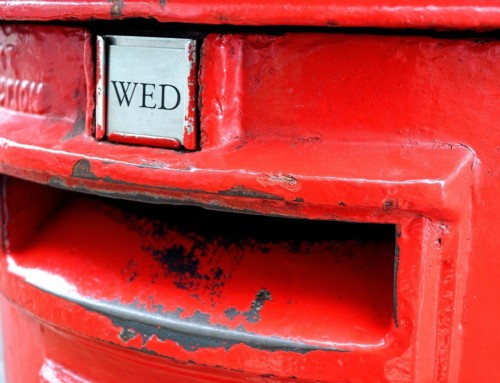What a Famous Thing to Say: 6 Quotable Lines and How to Use Em
The great thing is, when you drop these lines at your next cocktail party and people ask, “Where’s that from?” you’re actually going to know!
“Rule a large country as you’d cook a small fish.”
Lao-tzu, Tao Teh Ching.
Very little is known about Lao-tzu. The very name actually means “old master,” so it may simply be a name, like Homer, or the Preacher in the book of Ecclesiastes, ascribed to someone supposed to have written an ancient, famous work. There’s even some doubt as to whether Lao-tzu, or any one person, wrote The Tao Teh Ching. Still, this work founded a religion/way of life followed by 20 million people today. The famous line, with its piquant terseness, even a trace of humor, appears to counsel political moderation and wisdom. The wise governor governs least, interferes least. Use this line whenever an extremely big thing must be done with extreme care.
“Abandon all hope, you who enter here!”
Dante, The Inferno.
This is the slogan written over the main entrance into Inferno. The message is clear. Hell is pretty definitively The End. If this is where you end up, ain’t no bus out. You know how most of the time, if stuff gets you down, your friends will say, “Hey, come on, cheer up. It’ll get better. Just you wait?” Well, not here. This is the ultimate Line to Use When Things Are Irretrievably Bad. Use it whenever you or your friends are about to go into some doubtful place, such as an Internal Revenue Service office, a bar, a dentist’s office or a draft office in wartime. And remember, it also comes in handy just before entering the dwellings of parents-in-law, loan officers, or difficult lovers.
“Now is the winter of our discontent.”
William Shakespeare, first line of Richard III.
Most people don’t realize that Richard III, the guy who speaks this line, is a villain. The next line, “Made glorious summer by this sun of York,” is totally sarcastic, directed at the present resident of the throne, which Richard really really really wants. Richard III is a scheming, morally challenged evildoer who compounds outrage upon outrage in his quest for power. He seduces a woman by the casket of her husband (one that Richie killed), drowns his brother in a cask of wine and performs other charming stunts along the way. So this line is the all-time expression of virulent impatience. Use it whenever you or someone you know has entered a stretch of misfortune, bad luck, or frustration. Makes a nice statement ot empathy. Suppose your pal says, “Man, I haven’t had a date in 20 years.” Nod your head sympathetically and say, “Now is the winter of our discontent!”
“It was the best of times, it was the worst of times.”
Charles Dickens, A Tale of Two Cities .
This line hits maximum potential when you use it to describe your childhood, a party, your family, a class reunion or any other event about which you are completely ambivalent. “How was the boss’s Christmas party last night?” “Oh, it was the best of times, it was the worst of times.” “Daddy, what was it like growing up in 1974?” “Oh, Junior, it was the best of times, it was the worst of times.” So many memories and gatherings inspire ambivalence that folks will probably never stop using this line. (Note: A Tale of Two Cities also has a pretty great ending, which contains the line “It is a far, far better thing I do, than I have ever done.” You can say this aloud when you want to be praised for some selfless deed you’re about to perform.)
“Things fall apart; the center cannot hold.”
William Butler Yeats, “The Second Coming”
Throughout recorded history, human beings have looked around at the world and ex-claimed “Everything is falling apart!” And they have always been wrong. The sun rose in the morning, and there was a world. Maybe not the greatest world, but a world. Still, that nagging human sense remains: things are getting bad, and they can only get worse. The 20th century was like that, personally and internationally. That may be why Yeats’s line is possibly the most-quoted line of modern poetry. Use it vigorously whenever every thing is just crumbling around you. (Boss: We lost our biggest account! You: Things fall apart; the center cannot hold.) Also good when a very embarrassing situation happens, such as, for example, when someone’s brassiere falls open, someone’s pants fall down or a plant comes crashing down from a mantelpiece.
Never laugh at live dragons.
J. R. R. Tolkien, The Hobbit
This line is a version of Shakespeare’s famous “Discretion is the better part of valor.” It’s not a good idea to dare forces that are stronger than you are, especially if those forces don’t have anything holding them back. In other words, don’t play chicken with a universe that doesn’t have your best interests at heart. Don’t dance in front of the onrushing train; you might get caught on the tracks. Use this wise and hilarious line when it’s better to be quiet than confrontational. “Let’s go tell the boss she’s a pain in the butt.” Ah, never laugh at live dragons. Let’s go to the police station and tell them we aren’t paying that drunk-driving ticket. Ah, never laugh at live dragons.
Adapted from mental_floss presents: Condensed Knowledge (HarperCollins).





